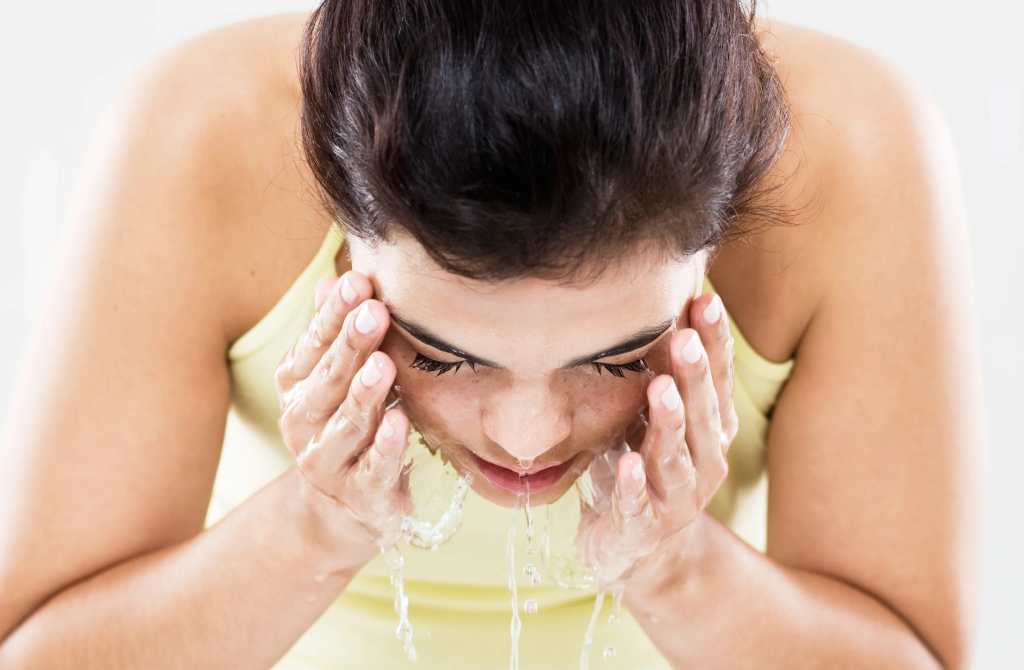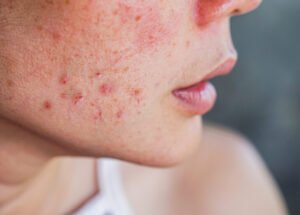One of the most common questions people have about oily skin and hair is whether they have an excess of body fat. According to experts at Ducray Dermatological Laboratories, the answer is yes.
Greasy hair can be caused by several factors: hormonal changes, bad eating habits, stress, taking certain medications, or the buildup of sebum on the scalp due to washing with inappropriate products, according to specialists at Hospital Capilar.
Oily skin and hair are consequences of the overproduction of sebum by our sebaceous glands, “which are especially abundant on the scalp and in the central area of the face, that is, the T-zone, which includes the chin, forehead and nose and their edges, as well as the upper part of the trunk, that is, the back and neckline,” say Ducray.
THE SKIN
Sebaceous glands can overproduce for several reasons, but for most people, having an oily face is a matter of genetics.
Esperanza Sáenz, image manager at Nezeni Cosmetics, says: “With excess oil on the skin of the face, the pores become clogged and pimples and acne breakouts may appear.”
But the specialist adds that it is not entirely bad to have this type of skin because “it is less likely to show premature signs of aging and always looks younger than dry skin because the natural oils in the dermis make it less prone to fine lines and wrinkles.”
One thing to keep in mind is that some people hide their oily complexion with makeup “and it can be frustrating because the oil will eventually come to the surface. The best thing is to use blotting papers and specific mattifying foundations,” adds Esperanza Sáenz.
TRICKS FOR EXCESS BODY FAT
But experts also point out that there are different options to reduce the amount of sebum produced, such as exfoliating the area regularly.
“Even though our instinct tells us to use the most abrasive exfoliant, it is best to choose a gentle one. This way we will avoid damaging our skin in the long term,” says Sáenz.
But you should not over-exfoliate, “because, paradoxically, this can cause even more sebum to be produced, due to the signals that the skin sends to the glands. If you strip the skin of its natural oils, the skin will send a warning to produce even more oil than before, causing a greasy mess,” adds the expert.

The best thing, according to Sáenz, is “if possible in the morning and before going to bed, to clean the area using micellar water and avoid products that contain comedogenic oils, as they can clog pores and cause acne.”
One of the disadvantages of oily skin is that it can cause spots or hyperpigmentation after the breakout, so it is best to prevent it. The expert says that “regular exfoliation helps, but using a good sun protection cream will help us minimize the possibility of these spots or dark marks appearing.”
THE HAIR
Sebaceous glands produce sebum as a protective measure for hair fibers against external factors. Oily hair is a consequence of excess sebum production.
“The causes can be similar to those of an oily face: hormonal changes, stress, increased physical activity, some systemic diseases, the use of medications, washing the hair with inappropriate products, poor washing technique, the abuse of hats, caps or headdresses, or excessive manipulation of the hair,” explains Dr. Mª Eugenia Segovia, hair surgeon at the Hospital Capilar clinic.
Oily hair looks weighed down, unkempt, and lacking in volume. This situation worsens in summer due to the external aggressions to which the hair is subjected, in addition to the excessive sweating that is typical of this season.
According to Hospital Capilar, this type of hair can cause, in the worst case, an obstruction in the oxygenation of the hair, preventing it from receiving the necessary contributions of nutrients and oxygenation that it needs for its maintenance, with excessive hair loss or the appearance of seborrheic dermatitis, related to alopecia, which leads to symptoms such as itching, redness, and flaking at the capillary level.
IDEAS FOR OILY HAIR
“We must use a shampoo that is appropriate for our needs, taking into account that it is not the hair that we need to wash, but rather the scalp,” says Dr. Segovia.
The product should be applied with a massage, leaving it to act for a few minutes and then rinsing it off with warm water, but “you have to make sure that you remove any traces of shampoo or other elements that you use, otherwise they will accumulate on the dirt from before washing,” adds the surgeon. She points out that, “since excess oil production is usually related to a pH deregulation, it is advisable to combine a sebum-regulating shampoo that cleans more deeply with another frequently used pH-neutral shampoo, to achieve a pH rebalance.”
In addition, it is advisable not to overuse dry shampoos to keep hair looking clean for longer, as more dirt can accumulate and irritate the scalp.
The doctor also recommends conditioners and masks, but applied from the middle to the ends and never on the roots, as well as the use of a hair exfoliant once a week, to help keep the scalp free of residue.
In hot weather, you can wash your hair even twice a day, if necessary. “It is a myth that we should not wash our hair every day. We should wash it according to the needs it requires. If we do not wash it enough, we will clog it by accumulating excess sebum, causing stress to the follicles that will contribute to weakening and subsequent hair loss,” stresses the Hospital Capilar specialist.
In addition, to combat oily hair, “it will be essential to have a healthy and balanced diet, avoiding, as far as possible, ultra-processed foods, alcohol or refined sugars and increasing the consumption of foods rich in vitamins and minerals; since diets deficient in vitamins, mainly group B, can increase the levels of sebaceous secretion,” concludes the doctor.






















+ There are no comments
Add yours